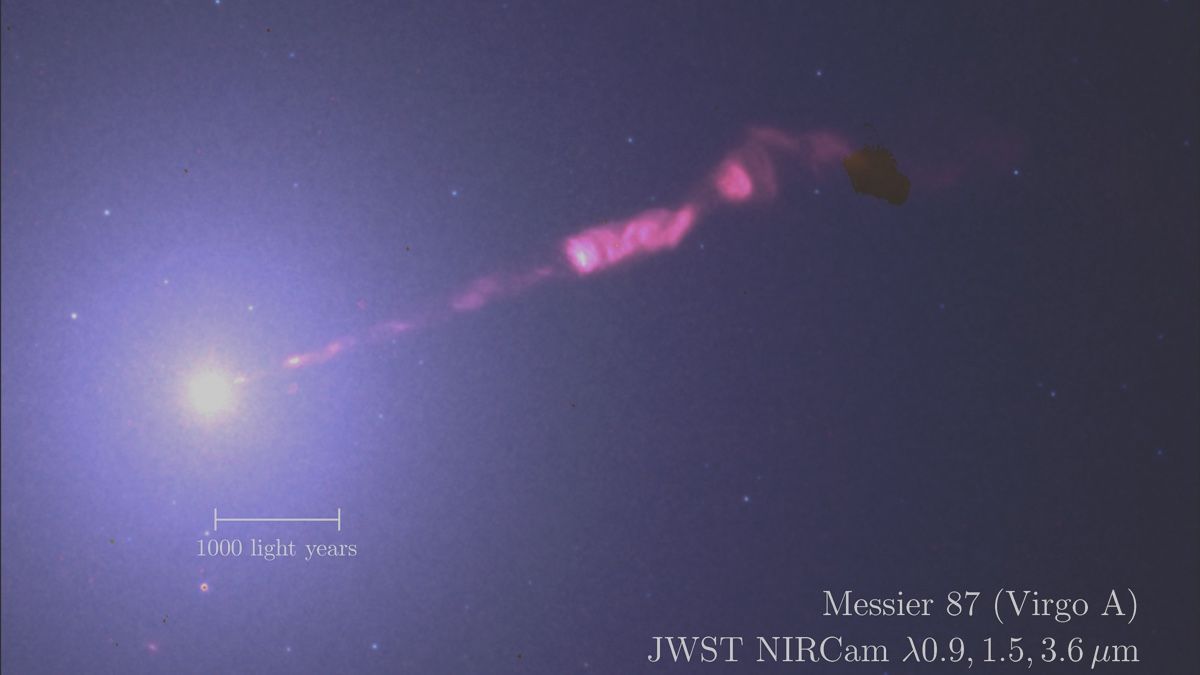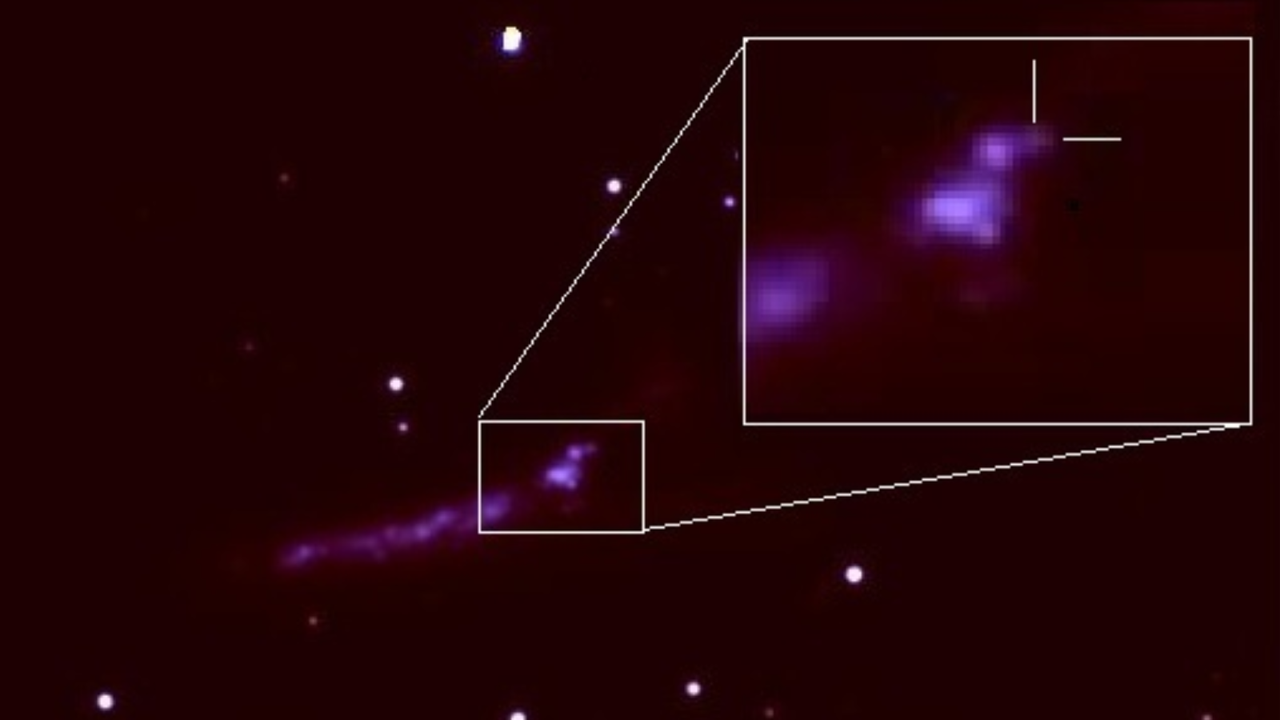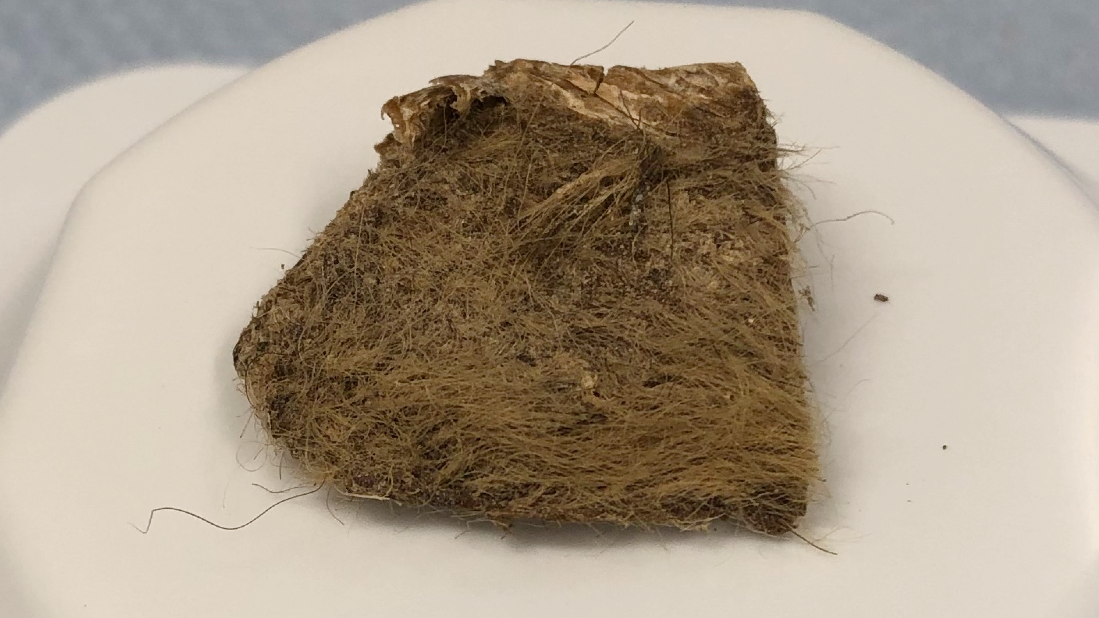James Webb telescope finds something 'very exciting' shooting out of first black hole ever imaged
PositiveScience

The James Webb Space Telescope has made an exciting discovery by capturing a gigantic jet shooting out of the first-ever imaged black hole, M87*. This breakthrough not only enhances our understanding of black holes but also showcases the advanced capabilities of the telescope, opening new avenues for astronomical research.
— via World Pulse Now AI Editorial System






